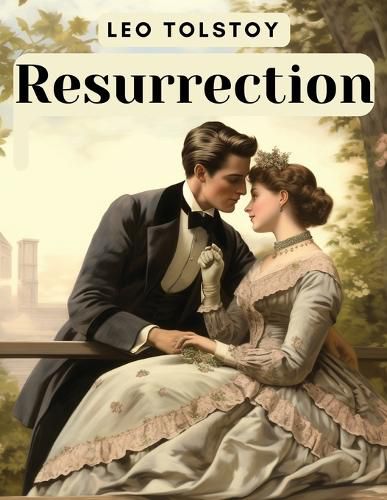Readings Newsletter
Become a Readings Member to make your shopping experience even easier.
Sign in or sign up for free!
You’re not far away from qualifying for FREE standard shipping within Australia
You’ve qualified for FREE standard shipping within Australia
The cart is loading…






This title is printed to order. This book may have been self-published. If so, we cannot guarantee the quality of the content. In the main most books will have gone through the editing process however some may not. We therefore suggest that you be aware of this before ordering this book. If in doubt check either the author or publisher’s details as we are unable to accept any returns unless they are faulty. Please contact us if you have any questions.
"Resurrection" (also known as "The Resurrection") is a novel written by the renowned Russian author Leo Tolstoy. The book was originally published in 1899 and is one of Tolstoy's later works. Unlike his more famous novels like "War and Peace" and "Anna Karenina," "Resurrection" is often considered a less well-known but thought-provoking work.
The novel follows the story of Prince Dmitri Ivanovich Nekhlyudov, a nobleman who, as a young man, seduces and abandons a servant girl named Katusha Maslova. The narrative unfolds as Nekhlyudov encounters Maslova years later when she is on trial for murder. This chance meeting prompts Nekhlyudov to reexamine his life and the moral consequences of his actions.
"Resurrection" explores themes of justice, morality, redemption, and the search for meaning in life. Tolstoy, who had undergone a spiritual transformation in the later part of his life, uses the novel as a platform to express his philosophical and moral beliefs. The story delves into the complexities of human relationships, societal injustices, and the possibility of spiritual awakening and redemption.
Tolstoy's writing in "Resurrection" reflects his deep interest in Christian teachings and nonviolent resistance. The novel serves as a vehicle for the author to convey his critique of the Russian legal system, the church, and the social inequalities prevalent in society during that time.
"Resurrection" is not as widely read or studied as Tolstoy's more famous works, but it remains a significant piece of literature for its exploration of moral and ethical questions within the context of a compelling narrative.
$9.00 standard shipping within Australia
FREE standard shipping within Australia for orders over $100.00
Express & International shipping calculated at checkout
This title is printed to order. This book may have been self-published. If so, we cannot guarantee the quality of the content. In the main most books will have gone through the editing process however some may not. We therefore suggest that you be aware of this before ordering this book. If in doubt check either the author or publisher’s details as we are unable to accept any returns unless they are faulty. Please contact us if you have any questions.
"Resurrection" (also known as "The Resurrection") is a novel written by the renowned Russian author Leo Tolstoy. The book was originally published in 1899 and is one of Tolstoy's later works. Unlike his more famous novels like "War and Peace" and "Anna Karenina," "Resurrection" is often considered a less well-known but thought-provoking work.
The novel follows the story of Prince Dmitri Ivanovich Nekhlyudov, a nobleman who, as a young man, seduces and abandons a servant girl named Katusha Maslova. The narrative unfolds as Nekhlyudov encounters Maslova years later when she is on trial for murder. This chance meeting prompts Nekhlyudov to reexamine his life and the moral consequences of his actions.
"Resurrection" explores themes of justice, morality, redemption, and the search for meaning in life. Tolstoy, who had undergone a spiritual transformation in the later part of his life, uses the novel as a platform to express his philosophical and moral beliefs. The story delves into the complexities of human relationships, societal injustices, and the possibility of spiritual awakening and redemption.
Tolstoy's writing in "Resurrection" reflects his deep interest in Christian teachings and nonviolent resistance. The novel serves as a vehicle for the author to convey his critique of the Russian legal system, the church, and the social inequalities prevalent in society during that time.
"Resurrection" is not as widely read or studied as Tolstoy's more famous works, but it remains a significant piece of literature for its exploration of moral and ethical questions within the context of a compelling narrative.